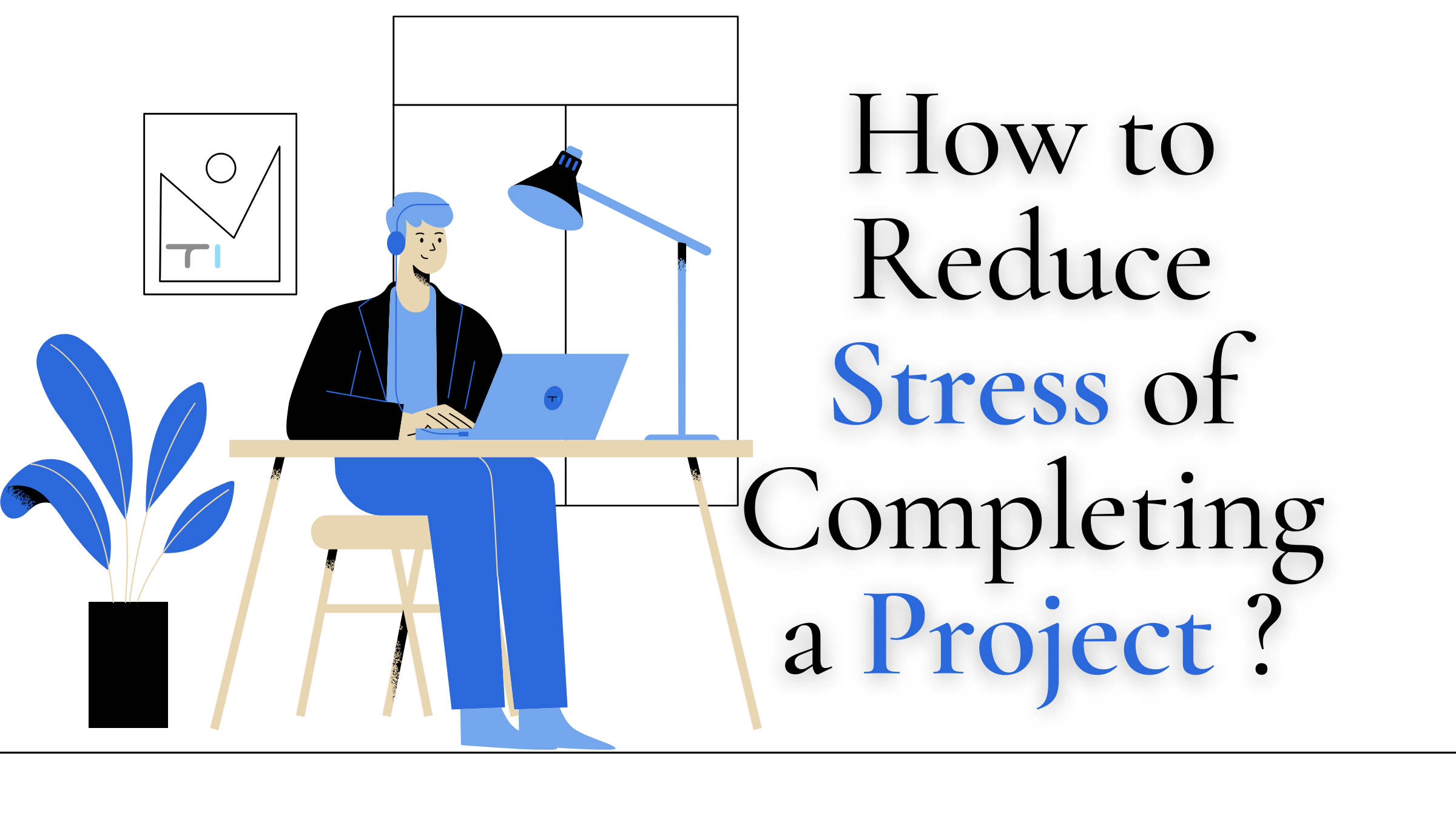Contents
Abstract
Project Management has a lot of activities involved, and they should be completed efficiently on time. Hence, the process of project management can be stressful. The project manager is the leader of the project and has to deal with a lot of stress. This pressure can affect the performance, behavior, and physical health of an individual.
There is no denial about the immense amount of work on the project manager. A project manager is a person who is responsible for the completion of the project. One has a lot of responsibilities while managing a project. The project manager has many roles in the project from the beginning to the end of delivery.
This article covers various aspects of stress and its effect on the individual as well as the organization. The remedial actions are suggested to reduce the stress. These corrective actions are subjective and may not work on every task. Nevertheless, you should study these solutions and choose the best possible alternative to deal with stress.
Introduction
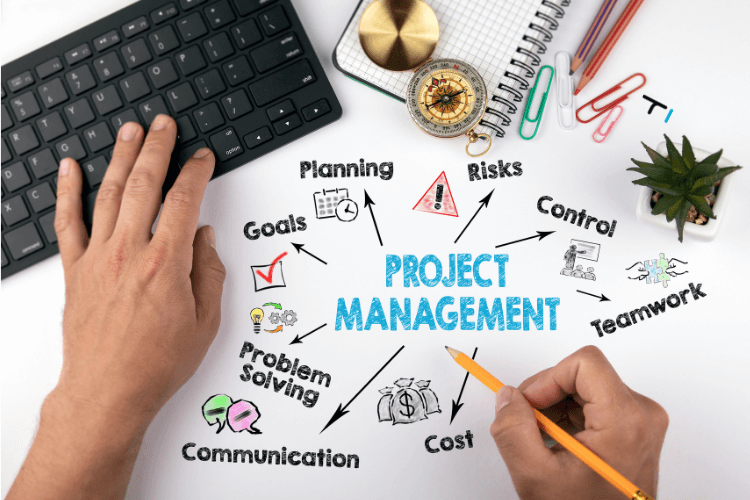
Project management is a complex process that involves planning, scheduling, organizing, and controlling the project to get the desired results—first, getting things done and knowing what you want to achieve at the end of the project. Second, systematic scheduling and allocating the activities to each team member who has a common understanding. Getting into project management isn’t a difficult task.
Involving in open communication to ensure a mutual agreement is the task of every project manager. An efficient project manager bridges the gap between planning and reality and manages the project within the boundaries of time, cost, and scope. This is also known as the project’s triple constraints. The project manager’s duty is to balance these constraints to avoid any fluctuations in the projects. It is a challenge to maintain the project’s quality and deliver it to satisfy the customer.
While managing the project tasks, the task manager is bound to face stress and anxiety. The project life cycle involves a standard framework of the project that integrates many activities which the project manager has to do. Some amount of stress is necessary for good performance. But more strain leads to a decrease in performance and delay in delivery. This will ultimately lead to the failure of the project and dissatisfied customers.
What is Stress?

We have all heard about stress in our life. Stress is any physical, mental, or emotional discomfort that causes tension in our body. Our body reacts to any changes made in the environment. Any alterations in our daily activities can cause tension and anxiety. Our body takes time to adjust to any changes made in our surroundings. As we become comfortable with the changes, the tension in our bodies starts to reduce.
Stress is nothing but a reaction to the changes that require adjustments or responses. It is experienced by the body, environment, and thoughts.
Stress can be:
- Internal – This comes from illness or medical procedure.
- External – This comes from the environment, physical or social situations.
Stress can adversely affect your health and can even be deadly.
Let me tell you the story of my friend dealing with stress and how he overcame it.
My friend Josh was a renowned project manager in a construction company. The project was extensive, and he knew that they would struggle with the delivery of the project. He raised the awareness of the same to the line manager and business unit manager of the company.
He received no help from them and was told to move along with the project. To meet the unrealistic deadlines of the tasks, Josh overworked himself every day and late till night. He even worked on weekends. After six months of intense work, one day, he collapsed while working in the office and had severe chest pain.
The reason for this collapse was a condition in which the fluid in the body accumulated around the heart. The doctors said that this condition was created due to severe tension and can even be fatal.
This alarming incident led to some exciting changes in the company where Josh worked. The company became more aware of the employees’ health and even conducted a program to detect negative stress warning signs.
Josh, himself had a wake-up call and decided to tackle stress. He changed his working style by taking time out of work to spend it with friends and family. He started balancing his work and life efficiently. He took some time out for his hobbies and for relaxing. Made sure he is having at least eight hours of sleep while waking up early. This was helpful and led to some dominant changes in his personal as well as professional life.
Today, Josh runs much more significant and complex projects, but they don’t affect him the way they used to. He indeed overcame the negative symptoms of stress.
3 Things to Remember about the Stress:
- Stress is deadly.
- Taking joint responsibility for the tasks is necessary. The project is not the sole responsibility of the project manager. The burden should be shared among all the stakeholders of the project.
- We can overcome negative stress with a healthy system.
Question Remains, how can you reduce the stress of completing a project? For that, let’s first understand the Stress Curve.
Stress Curve
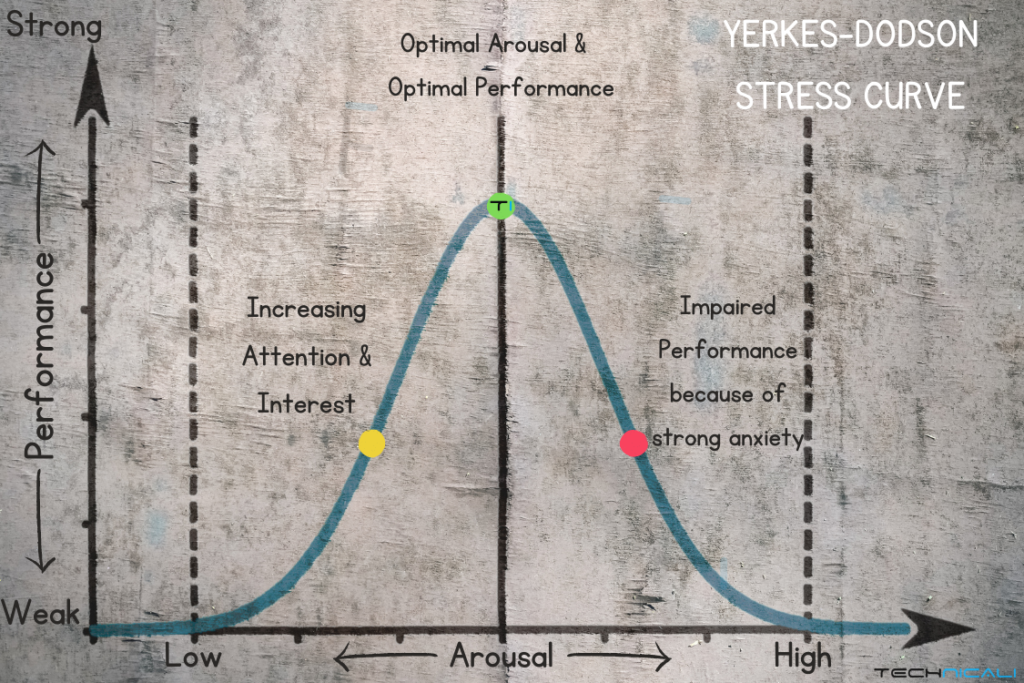
Yerkes- Dodson’s stress curve implies that some amount of stress is essential to perform at best. There is a relation between your performance and pressure. Some amount of pressure helps you to function effectively.
If there is less or no pressure, then the performance will decline.
This low pressure and performance phenomenon is called rust out. In rust out, there is very little demand for your work, and it is often demotivating.
The rise in work pressure will help you to perform better. You will have to stretch a bit to accomplish the task, and this will lead to better performance. This stretch is continuously motivating us to improve our performance.
At one point in time, you will reach your peak and know that you won’t be able to handle any pressure now. This is the point where your performance will begin to decline. This is the apex of the curve, where job performance and job pressure are the highest.
As the performance begins to decline, the pressure of the work increases. If this decline continues, there will be a point when you have a lot of pressure, but your performance will be poor. This is called burnout. This is a bad point in the project, and bouncing back to action can take very long.
Things to learn from Yerkes- Dodson stress curve:
- Too much pressure will lead to burnout.
- Too little pressure will cause rust out.
- You should find your peak performance zone.
Causes of Stress in Project Management
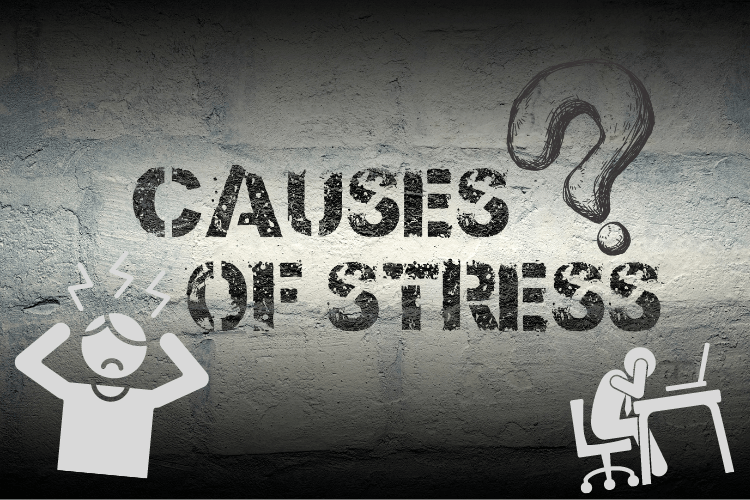
Stress impacts the project managers, team members, owners, as well as clients involved in the project. Stress can heavily influence your project, and it’s working. So, it is important to know the causes of stress.
Stress in the project can be caused due to many reasons:
Lack of Decision-Making Authority
The project manager is the head of any project and has the authority to make any changes to improve the project’s better working. Unfortunately, some organizations give the project managers neither the authority to make decisions nor their opinion in the working and usage of project resources. This leads to frustration and stress while working on a project.
Large Stakeholders
The more, the merrier! But not always. Too many people’s involvement in the project leads to confusion and chaos. The project manager is confused by listening to many stakeholders’ demands as communication with so many people is difficult. This leads to a decline in the performance of the project due to unclear objectives. The manager does not know how to fulfill the needs of so many stakeholders. This often creates dissatisfaction among the team members.
Unreasonable Clients
Some clients are not firm on their scope and continuously change the scope of the project. This leads to changes in other project constraints, increasing the time or cost of the project. This is the most common reason for the projects to fail. Sometimes, the client is not clear about the research, objectives, and requirements of the project. This causes strain for the manager and the team to complete the project well.
Lack of Resources
The project is fueled based on resources available to the organization. The project is analyzed to estimate the basic requirements of the resources. If the resources available are less, then the project manager deals with stress. Sometimes the resources are not adequately aligned to time again, causing tension in members and managers. The project manager also has to deal with the scarcity of resources in the project.
Challenging Teams
The project manager works with the team and communicates with them regularly. It becomes difficult for a project manager to manage a lazy team who is continuously absent and has delayed their submission dates. This teaming type can’t understand the importance of fulfilling the project’s objectives and its future delivery. This leads to a communication gap leading to stress points for both the team members and the project manager.
Workload
As we have seen in the above example of Josh, the workload can lead to stress. When you give more time to a project and forget about your life, it will lead to anxiety. More workload will cause friction in your work-life balance and lead to family problems. Continuous working without any breaks or rest can also bring illnesses and diseases to your body. Every manager should create a proper execution plan and divide the workload with various management tools, which will free up a lot of time for other tasks as well.
Project Environment
Project environment means the whole process and surrounding areas of a project. It involves planning, scheduling, and procuring the resources that would be needed for the project. It also demands continuous and correct communication to all the stakeholders of the project. It involves dealing with any changes in the project. All these activities can invite stress and anxiety.
Impacts of Stress
There are various serious consequences of stress that affect us physically, mentally, and emotionally. While a certain amount of tension can help you perform better, a lot of tension can lead to serious problems. Stress has its impact on the individual, your family, and also the organization.
Let us study the impacts of stress:
Consequences for an Individual

- Anxiety and depression
- A lot of anger
- Risk of developing medical conditions and diseases
- Frustration and insomnia
- Addiction to drugs and alcohol
- Loss of self-confidence and insecurity
Consequences for the Family

- Conflicted interpersonal relations with parents
- Constant fights with your partner
- Ignoring the parenting role
- Creating tension and worry for the family
- Creating Depression in Children
- The feeling of not being loved or respected by others
- Financial problems from stress-related behaviors (gambling, overspending)
Consequences for Organization and the Project

- Lost interest in the work
- Increase absentees
- Tense and odd behavior.
- Lack of enthusiasm and poor performance.
- A decrease in the quality and quantity of work leading to decreased organization profits.
- Lack of commitment and motivation to work.
- Constant fights and debates with your co-workers.
- Less engagement with co-workers
- Reduced productivity
- Risky behavior like drug abuse
There is also an increased risk that they will develop psychiatric disorders themselves, which can lead to a suicide attempt, even if it has been years since their last stressful event.
Effects of Stress on a Project
Stress is very common in project management. It directly impacts the performance and productivity of the project. Stress can make working for the organization an unpleasant experience leading to losing interest in the project. It affects your ability to lead the project effectively and makes it difficult for you to prioritize your work.
Some effects of stress on project management are as follows:
Decline in the Performance

A stressed project manager is easily distracted from work and loses focus and motivation more often on the project. That person becomes lazy, ignores the project’s deadlines, dislikes the work, and does not monitor team members’ progress. This further depletes the performance of the manager as they are not able to provide optimum leadership. They also may put off important decisions on how best to complete or manage the project, which can affect decision-making and judgment.
The effects of stress at work become more visible when it is chronic in nature. It leads to an unhealthy lifestyle that causes mental health problems such as depression, anxiety, and substance abuse, among others that have long-term implications on physical health too. A stressed-out person becomes difficult for co-workers to be around because he makes unreasonable demands on them while being inconsiderate about their needs. He might show symptoms of aggression by bullying his colleagues or complaining excessively about trivial issues without considering other factors like completion of the project, important deadlines, etc.
Lack of Innovation
A project manager will be unable to take any part in discussions and brainstorming sessions if under stress. Such a person will have no idea how to make the project more efficient and innovative. The project manager, under such circumstances, does not use creativity to optimally use the resources available and often misuses the resources leading to increased project costs. Less encouragement from project managers in innovation leads to frustration among the members.
While dealing with the extra workload, the project manager has to take on additional work if there is a lack of manpower or resources. This will lead to an increased amount of stress and make it difficult for them to complete the project successfully, leading not only to delays but also high costs due to unplanned expenditure. It becomes increasingly difficult for such managers as they have less time in their hands to do things like evaluating new technologies and methods that can help in reducing cost while increasing efficiency.
Dissatisfied Customers
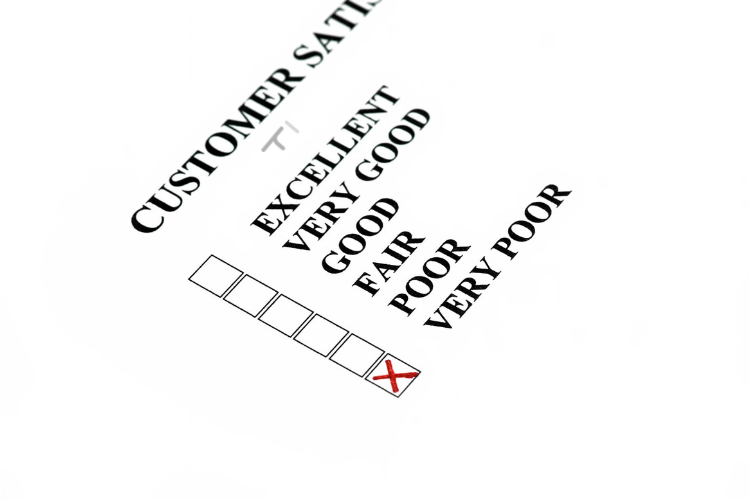
The project has the sole aim of impressing the customer by fulfilling all their needs and requirements. Suppose a project manager loses interest in work and delays. In that case, the project eventually doesn’t meet the objectives and deadlines, leading to unhappy customers whose needs get neglected. The lack of communication response from the manager leads to the permanent loss of the customers.
When the customer is unhappy, they are prone to leave and go for a competitor. When you have high attrition rates in customers, then it becomes difficult to sustain your business.
Therefore project managers need to be aware of these simple steps that can help them reduce stress without compromising on any work:
- Create detailed plans, including time frames, before starting anything significant to avoid getting stressed due to lack of planning.
- Keep their workload under control by delegating tasks among team members or outsourcing some parts if necessary.
- Ensure deadlines are realistic but strict enough to keep everyone motivated
- Stay updated with new technologies and methods for better efficiency while also reducing cost – this way; they will be able to make use of every penny invested into new technology is giving some form of perspective.
- Set up a system for monitoring progress and tracking completion of each task to avoid any delays – it is important not to stress about completing the tasks on time when using this system.
- Have fun! They can spend some quality time with their family or doing something they love as these moments will make them feel happy, thus reducing stress levels.
High Employee Turnover
There are chances of interpersonal conflicts with the members of the team. The team members may be hard-working, but constant debates and fights with the manager can leave the organization. This leads to the loss of efficient employees and increases the cost of employing and training new people. If the project manager is stressed, angry, and frustrated, the team will also be stressed and frustrated.
- If you feel like the project is too much for one person, try to divide it into smaller tasks and assign these to team members, as this will make everyone’s work more manageable.
- Always keep your cool and use positive language when coaching people on their work. This can help reduce stress levels in others and increase the productivity of the team.
- It is important not to panic about completing every task because that won’t allow them to focus on anything else. They should break down each task or deadline, so they are less daunting.
- When a problem arises, find ways to solve it rather than complaining (complaining only wastes energy). A solution could be delegating duties or asking someone for advice.
Higher number of Absentees
A tensed project manager is very distracted and unfocused. Such a person can often be absent from work due to a variety of reasons. The sincerity in work and not participating in the process of the project becomes very evident. Such a project manager takes many breaks while working and does not satisfactorily find the answers to the team’s problems. This often impacts the project and extends the delivery of the project. All these together contribute to the failure of the project.
Be aware of your personal well-being. This will ensure that you are able to complete the project successfully. It is important not only for yourself but also for those who rely on you in order to sustain their jobs. Ensure that you take time out, and if possible, do physical activities like walking, yoga, or any other sports activity, which reduces mental stress and improves health-related problems as well.
Stress Coping Strategies

Stress is a defense mechanism created to deal with any changes. While positive stress increases your performance, negative stress can lower it. It is necessary to deal with this negative stress because it can lead to health hazards. Stress also affects the productivity of the project and lowers the morale of the team.
Some techniques to reduce stress are as follows:
Goal Setting of the Project
The project manager is responsible for the end objectives to be achieved after the project completion. The manager also sets the parameters and boundaries of the scope and should be clear about things to be accomplished after the completion accordingly.
It is the duty of a project manager to set realistic goals that can be achieved within the time allocated for completion. If the project is lagging in terms of delivery or quality, it will lead to stress. When the goals of the project are foggy, the team members are unaware of the work to be done. This further creates stress in the team. One can achieve goals by using some project management tools as well.
Improved Communication Skills

The project manager has to interact with a lot of people to ensure the smooth working of the project. It is the manager’s responsibility to communicate the project’s central ideas and themes to the team members. The stakeholders, owners, and clients all communicate with the manager to keep the project on track.
If any person’s communication, especially the project manager, is weak, it becomes difficult to complete the project satisfactorily. This causes tension in work. Hence communication is the key to reducing stress by understanding the requirements of other people in the project.
Working Better as a Team
We need to understand that stress can happen to anyone and for many reasons. Stress on one member of the team affects another, causing friction and tension in work. No one person can handle the project one-handedly, so it is important to trust other people on the team and allocate the work to them.
Building an environment of motivation, teamwork, and mutual trust can help to reduce the burden of many people. When someone is stressed, this mutual understanding will help reduce the stress and complete the project successfully. So it is better to work as a team and share responsibilities among the members.
Take Rest Breaks
You come to know in advance what is going to trigger your stress or anxiety level. It could be a new project, budget discussion, or an interaction with a person. So keep your mind and body relaxed before going through such situations. This will help us to think clearly and reduce our anxiety.
Sometimes, during a meeting, you feel you are starting to get stressed. Then take a break from the project for 5-10 minutes to relax your mind and body. You can even go out for a walk or coffee to clear your mind. These breaks will give you some time to process the information and help you think from a different perspective. Taking breaks will also spark creativity and focus on delivering work on the project.
Ensure Transparency
“Transparency and Communication” are the two sides of the same coin. They tend to correlate and integrate the process of project management, which is helpful. Transparency means an open and clear understanding of the project and its lifecycle. It is two-way communication between all the members of the project. However, it sometimes happens that some members are unaware of the changes made in the project. This indicated the low transparency of the project.
When there is high transparency, you are up to date with all the project information and progress of all the activities. Transparency can help increase employee engagement and reduce fatigue of work. It ultimately leads to a higher success rate of the project and lowers the stress level of all the people involved in the project.
Manage your Perception
Stress occurs when we have to adjust to the changes in the outer or inner environment. The perception of always being in control of all the activities often gives rise to stress. Perception is the way you see a particular thing or problem. It also refers to your attitude towards a situation and the way you detect things.
Perception is a subjective matter and differs from person to person. It simply means if I find my boss stressful, not everyone in the team needs to find the boss stressful. Perception is modified by altering your belief and thought process. This means managing your attitude can reduce the stress of completing a project well in the organization.
Practice Relaxation Techniques

When you are dealing with stress, you have to get out immediately. You may be in the meeting, discussing the work, but the minute you feel you are getting unrelated stress, make an excuse and leave the room before the conflict arises. Get out and practice some relaxation techniques to calm your mind and thoughts.
You can meditate or just observe your breathing for a few minutes. This will help to avoid any extreme reactions to the situation. You can even listen to soothing music to feel energized. This will help you think about the problem from a new perspective. You will get to view the bigger picture of the situation. This will all result in low stress levels and help you to maintain relations.
Conclusion
Project management is a stressful field because the project involves plenty of activities such as planning, scheduling, managing, controlling, and communicating with different people. The project manager will be responsible for the complete project’s success or failure. If the project manager is stressed, it will impact the whole team of the project.
Stress can affect you internally (heath degradation, anxiety, etc.) as well as externally (conflicts, poor performance, etc.). One thing about stress is that it can be managed. Managing your perception and attitude can help reduce stress. You should control your emotional brain and quit being in flight, fight, or freeze mode. You should use logic and critical thinking to make rational decisions without getting stressed.
You should detach and disassociate yourself for some time if you are getting tense. Then, you can analyze your situation from different angles to understand it better and find solutions. You should also help your colleagues and team participants if they feel stressed.
